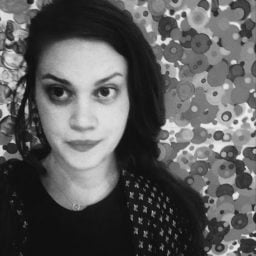Studio Visit
In a Rural Studio in England, Clare Woods Probes Human Nature, and Nature Itself
The English artist Clare Woods's latest exhibition "I Blame Nature" is now on view at Night Gallery in Los Angeles now.
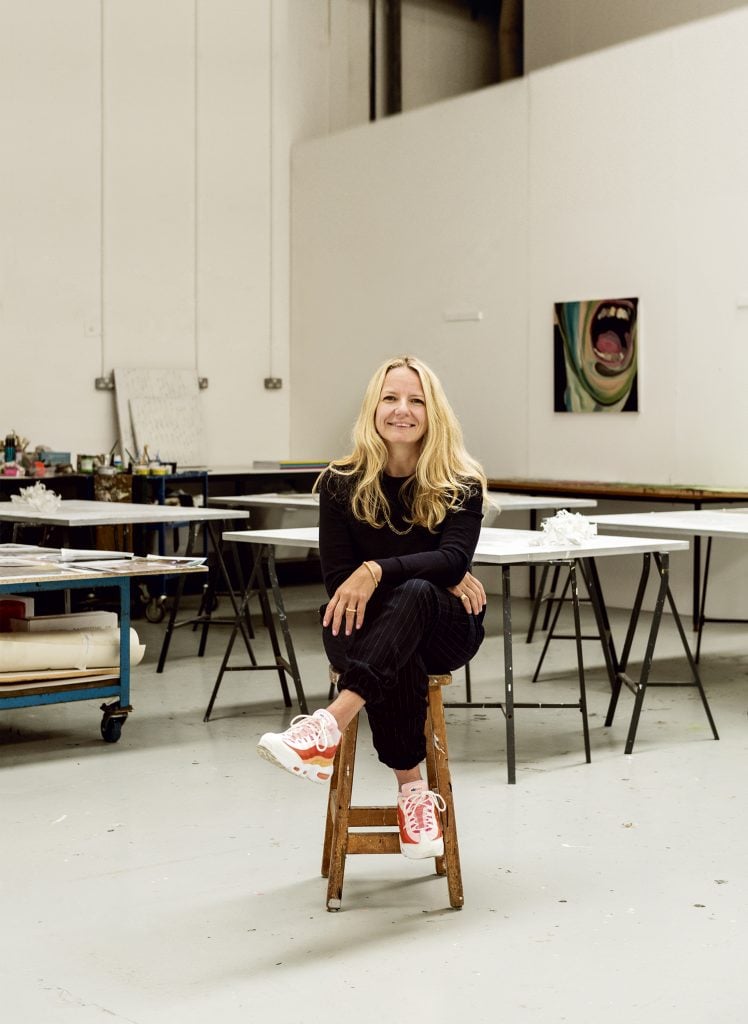
Clare Woods is a choreographer of color and form. The English artist paints horizontally, moving oil across aluminum surfaces in continuous, intimate motions, often completing works in a single session. She paints wet into wet with a sensory approach to color, working closely so that she only sees the complete image upon completion. Seeking inspiration from a trove of photographs that she’s taken and assembled over decades, she translates these images into evocative, dramatically lit visions with dynamic and often disorienting croppings. In her latest exhibition, “I Blame Nature” her second show at Los Angeles’s Night Gallery, is an investigation of time and its passage (through June 15). Flowers droop. Trifle desserts are cut into, with layers almost geographical in their strata. A mirror reflects a blue sky filled with clouds, an uncanny gesture to Reneé Magritte.
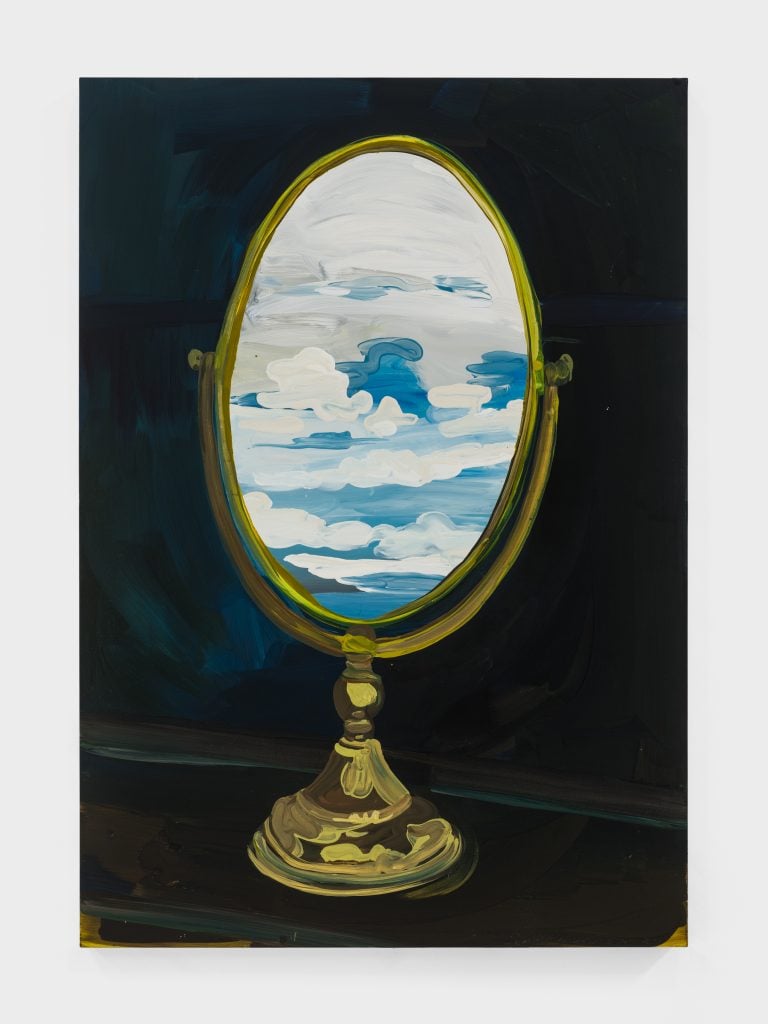
Clare Woods, I Blame Nature, 2023. Courtesy of the artist and Night Gallery.
These most recent works include nods to two new portraits—AL based on an image of Alice Neel and Lou worked from a late portrait of Louise Bourgeois (both 2023). Her admiration for these women alludes to her own aspirations for herself—creative independence and career longevity.
Recently we caught up with the artist at her studio in rural England and asked about what keeps her inspired, the studio tool she can’t do without, and more.
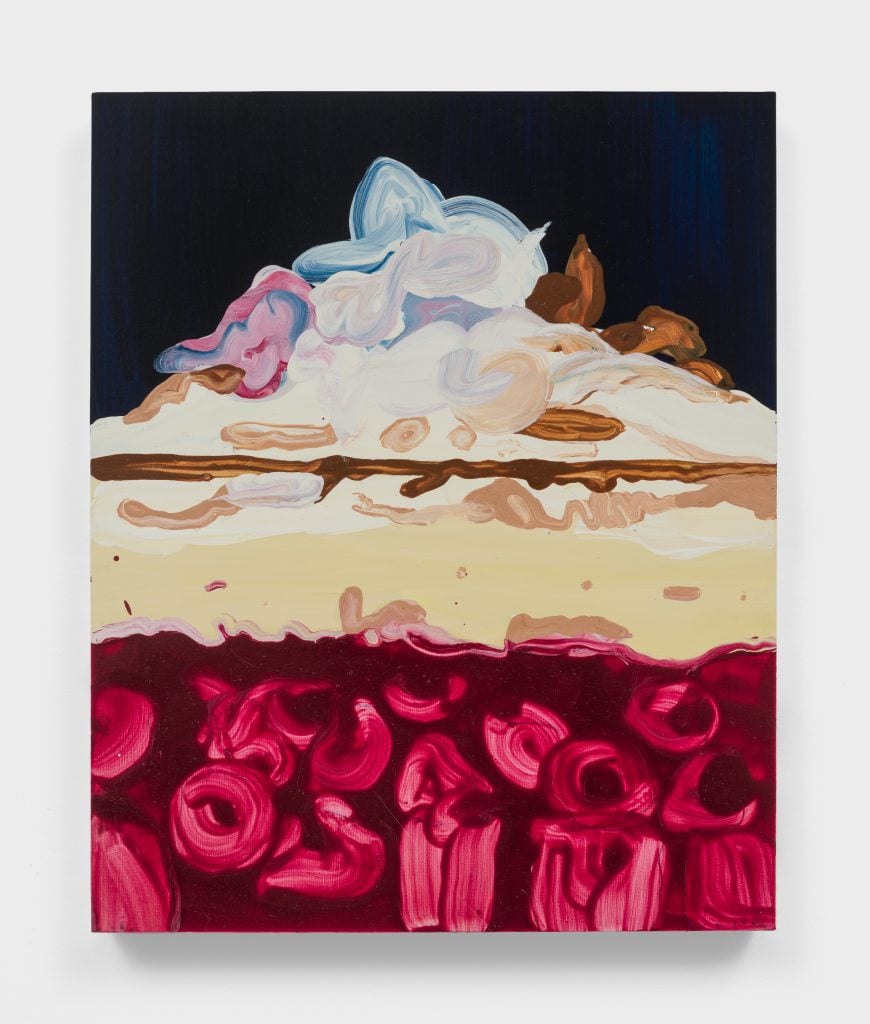
Clare Woods, Cold Front (2023). Courtesy of the artist and Night Gallery.
What does the title “I Blame Nature” mean? It’s quite evocative.
It’s multilayered. The phrase was something I overheard someone saying in public. I just thought it was quite an interesting term. At a very basic level, the British, all they ever do is talk about the weather. It’s a very important part of daily life. With climate change, I also thought of people being in denial or accepting it. But then I also thought of “nature” as in human nature. With everything that’s happening in the world, “I blame nature” is like saying “I blame human nature.” Beyond that, I thought of the physicality of being a woman, a lot of roles and aspects of our lives are laid out purely because of nature.
So, it can be a massive title or it can be a tiny title. I never want to be prescriptive.
Tell me about your process. How do you work with photographs?
Everything comes from photographs—the photograph becomes the base for the whole painting. Every single painting is a cropped image, essentially. The painting is on aluminum, so it finishes at the edge of the structure. The crop is quite important, but the image extends beyond the side of the edge of the painting. These are physical images. I used to take photographs and then have the photographs enlarged on a photocopier, but it’s important that it’s all physical. Now, I take pictures with my phone and print them out.
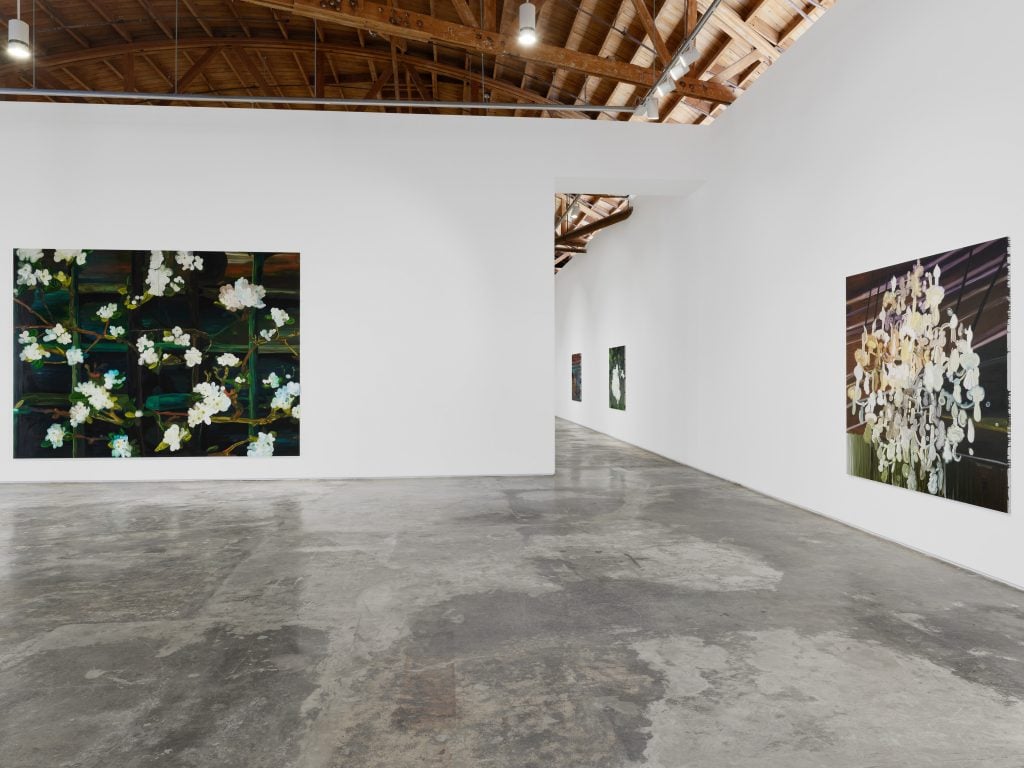
Installation view of Clare Woods I blame Nature on view at Night Gallery. Photo by Marten Elder. Courtesy of Night Gallery.
Have you always painted on aluminum?
I’ve painted on aluminum since 1998 or ‘99. I was working big and dragging things around myself. Aluminum is quite light and also very stable. I’ve always had really hot or cold studios, so the temperature fluctuation doesn’t affect it. I paint flat so I’m physically using my body and pushing the paint around and canvas just doesn’t work. I don’t like the texture of canvas, and I don’t like the way canvas sort of responds to your body or the weight of a mark. Whereas the aluminum is totally solid and doesn’t move so you can move the paint around quickly. I mix all of my paint on the structure so I’ll mix up five or six different colors, but the complexity of the making happens on the panel.
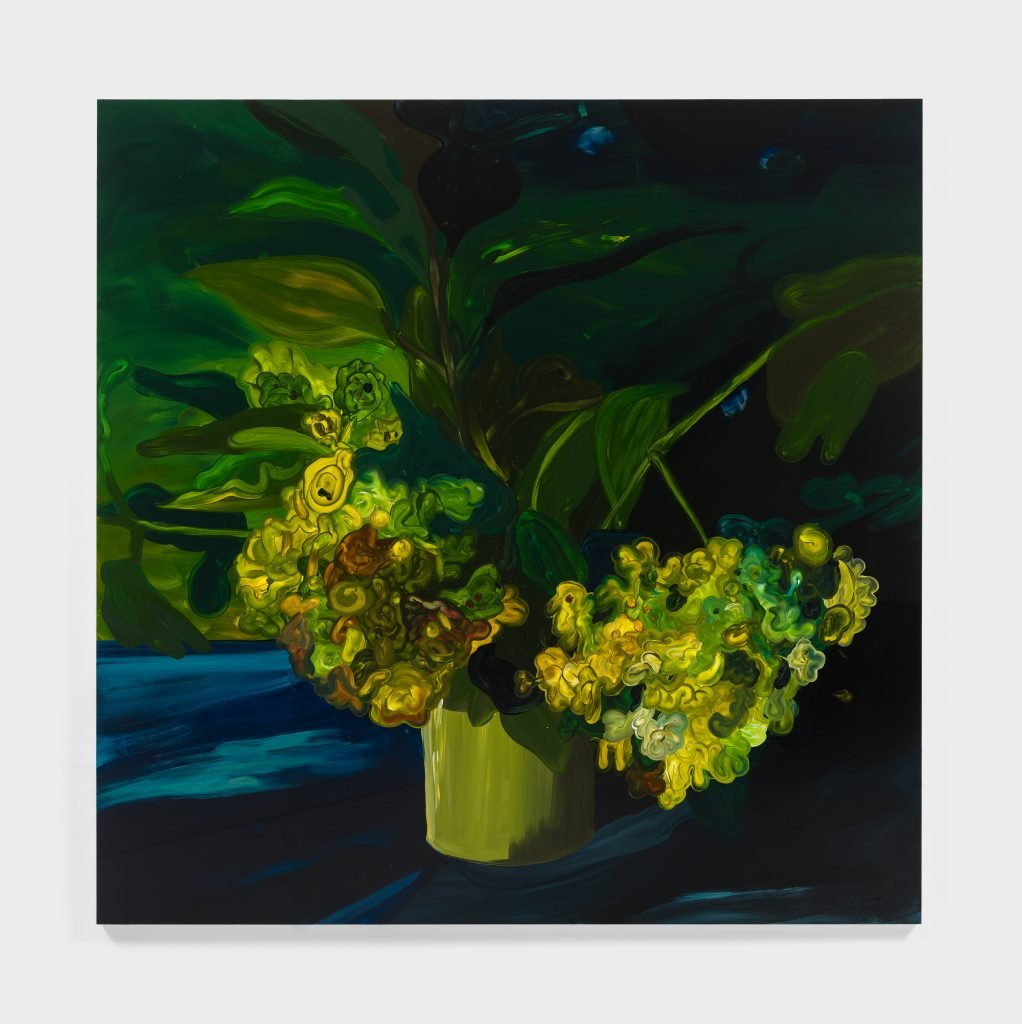
Clare Woods, Short Term Pessimist (2023). Courtesy of the artist and Night Gallery.
The exhibition includes portraits of both Louise Bourgeois and Alice Neel. Can you tell me about those?
Now, I have painted a few portraits. For my last show at Night Gallery, I painted two anonymous portraits from found images. The Louise Bourgeois is from a very classic photo of her in a wheelchair with a big fur coat on and a hat. At the same time, I was looking at images of trifles, the desserts. I was painting them at the same time—and something came together about texture, about strata, the way her skin was almost the same as the blanket. Alice Neel was a bit of an homage as well. These are paintings based on pictures of older women. Alice Neel has got her mouth open, her eyes closed. It’s not an attractive image. I suppose I was exploring the idea of female portraiture at a certain point in life, which tied into the title of the show.
I believe one of the paintings in the show is based on a photograph of Sigmund Freud’s couch. Is that true?
Yes, that one’s called Hampstead Bizarre. I did an early painting of the whole couch—this is a section of it. When Freud came to England, he had a collection of Persian rugs and in his consulting room he hung one on the wall, but a rug is also over the couch, and there’s a rug on the floor, and two cushions. When he moved to Hampstead it was a very conservative area and he had this huge collection of African sculpture, Persian rugs, and Middle Eastern objects. The title is a play on both a “bazaar” where such objects might be sold and also the bizarre incongruity.
What’s your favorite tool in your studio?
I couldn’t make my work without a scalpel. I put tape on my paintings, and I use the scalpel to cut the masking tape or I use it for cutting the skin off the surface of the paint or for cutting paper for collages. I use it all the time. It’s the tool I couldn’t live without.

